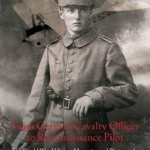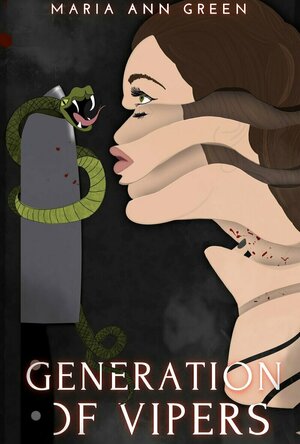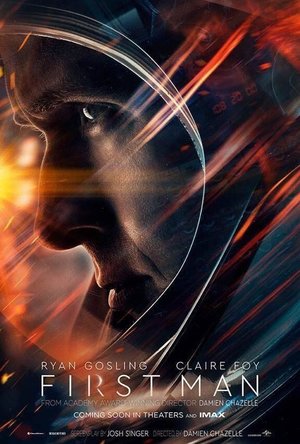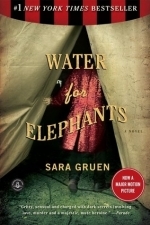
From German Cavalry Officer to Reconnaissance Pilot: The World War I History, Memories, and Photographs of Leonhard Rempe, 1914-1921
Book
Twentyoneyearold Leonhard Rempe volunteered to serve Germany in 1914. By the time World War One...

MakeMyTrip - Flights, Hotels
Travel and Lifestyle
App
****If you see any problems in your Referral balance or credits, please email us at **** ...

Cheap flights and airline tickets — Jetradar
Travel and Lifestyle
App
Jetradar app lets you compare airfares from hundreds of airlines and travel agencies and delivers...

Square Point of Sale (POS)
Business and Finance
App
Square Point of Sale (formerly Register) is the free point-of-sale app that gives you everything you...

Generation of Vipers
Book
Rosabella Moore-Davis has just moved her husband halfway across the world, with a spur of the moment...
Adult Gothic Psychological Thriller
Daniel Boyd (1066 KP) rated Never Mind The Bollocks, Here's The Sex Pistols by The Sex Pistols in Music
Nov 2, 2017
If American Idiot is a slap on the wrist of the government and a nudge to change things, Never Mind The Bollocks is the Pistols grabbing the man by the throat and squeezing until he is forced to listen to them. In the years prior to this record coming out, the charts were dominated by songs that were being played on a minimum of 15 different instruments per song. There hadn’t been a record composed solely of a guitar, a drumkit, a bass and a vocal in far too long and The Sex Pistols hit the reset button on rock ‘n roll music going forward. This record had to happen, without it bands like Oasis and Nirvana would never have came to be, or if they did they would sound vastly different to what they do today. This record has an undeniable feeling to it that no other record does, it is fury, frustration, desperation and sadness all at once and for me, there is nothing else in musical history that quite captures that feeling in the same way. This is simply four bored lads with pure raw talent telling us exactly how they feel and making sure not to leave out any of the gory details. Every riff on this album is a violent wake up call, every drum beat feels like a well deserved punch to the face and with Lydon’s voice and lyrics topping it all off, it is a beautifully ugly piece of pop culture that is relevant even today. The Pistols take on everybody in this album, from the Queen, to politics, to record labels and all of it is so well composed and yet so spur of the moment simultaneously. It’s like Lydon is spitting at you but in perfect time and in the most unique way that has ever been put to record. The band had a flair that lit Britain on fire, especially the middle classes, this record got banned out of fear that it would cause the man on the street to rise up and see through the bullshit that politicians and the government try to spin us day in and day out. Every song points out what is wrong with the country and its ethics and policies and it defines the reasons that the public are fed up of it. The whole thing flows so well and even though it takes just under 40 minutes to listen to the entire album from start to finish, it goes by in a flash and leaves such a strong impression that causes you to be left thinking about what you have just heard for hours afterwards. This is a fleeting moment in modern history captured in the most brief, yet poignant way and without it the very culture of Britain would be entirely different. This album is so important, not just for it’s anti establishment themes or its musical reasons, but because it actually altered the course of history beyond just the musical ecosystem. There was never an album before Never The Bollocks that sounded anything like it and there hasn’t been one since and sadly, there probably never will be. The last great rock n’ roll band that the world really took notice of were Oasis and since then there has been nothing significant enough to capture the world’s attention. If you ask me what we need right now is another band like the Sex Pistols to swagger up and take the spotlight away from the dance/pop garbage that is dominating today’s charts. We need a band that can reset the musical machine and show the youth of today that all you need to make it is raw talent, a few instruments and a sprinkle of determination and the world can be yours. I am hopeful it will eventually happen, it has to and in my mind it is inevitable and is more a question of when rather than a question of if. That album is what will resurrect rock n’ roll music and bring it back to the forefront and the group that manages it will be the band that defines their respective generation. Since Oasis split the crown has been up for the taking and all we need is a band with enough balls and talent and who actually have something to say, to reach out and grab it.
Kristy H (1252 KP) rated Small Great Things in Books
Feb 1, 2018
This is a touching and powerful novel. Told from the varying points of view of Ruth, Kennedy, and Turk--baby Davis' father-- it is a compelling look at how race and family history shapes the person we become. It is a poignant story at points: it is amazing what people can rationalize when it comes to hatred. I found the novel very fitting right now, with what's going on in the U.S. Honestly, it's very frightening at times and hits a little too close to home.
Picoult's characters are well-formed and dynamic, and you find yourself drawn into parts of each.
Turk, obviously, despite the loss of his child, is not a sympathetic character, but he is a complex one; his progression over the course of the novel is intriguing, and it's amazing how Picoult did not make him a one dimensional white supremacist. The book is extremely well-researched; both from the side of white supremacy, as well as racism and the medical aspects of Davis' case. Kennedy is likeable and her struggle with Ruth's case, as she realizes the depth of both the visible and latent racism her client faces on a daily basis, is real and relatable. I applaud Picoult for tackling such a difficult subject with such honesty. It's almost as if, through Kennedy, she's admitting exactly what she doesn't know. (I highly recommend reading Picoult's afterword, as well.)
For me, the hardest parts of the book was that it gets a little too poetic in the Jodi Picoult way (those who frequently read her novels will identify), with her waxing on about race and parents and being brought together, versus letting the story tell itself. At points the book just goes on and on a bit, versus getting to the story and the point. There are lots of little subplots that go off, detracting at times from the main story and frustrating the reader. And, of course, there are some weird twists and plot points in the typical Picoult style, though they don't seem to pack the punch of her older novels. It all wraps up a little too smoothly, though I have to confess I sort of enjoyed the ending. It may have been a bit trite, but I am often a sucker for such things.
Overall, I was impressed with how Picoult approached this novel, and I enjoyed the storyline for the most part (I was certainly invested), though it dawdled at times and ended a bit too easily. I'd rate this a strong 3.5 - 3.75 stars. Certainly worth reading, especially if you're a Picoult fan.
I received a copy of this novel from the publisher and Netgalley; is available everywhere as of 10/11/2016.

App in the Air
Travel and Productivity
App
App in the Air - your personal flying assistant that keeps you up-to-date with your flight: real...
Bob Mann (459 KP) rated First Man (2018) in Movies
Sep 28, 2021
I am a child of the 60’s, born in 1961. The “Space Race” for me was not some historical concept but a pervasive backdrop to my childhood. I still recall, at the age of 8, being marched into my junior school’s assembly hall. We all peered at the grainy black-and-white pictures of Neil Armstrong as he spoke his famously fluffed line before stepping onto the lunar surface. The event happened at 3:54am UK time, so clearly my recollection of “seeing it live” is bogus. (I read that the BBC stayed on air until 10:30 in the morning, so it was probably a ‘final review’ of the night’s events I saw). It is probably lodged in my memory less for the historical event and more due to the fact that there was TELEVISION ON IN THE MORNING! (Kids, ask your grandparents!)
A very personal connection. My personal copy of Waddington’s “Blast Off” board game, briefly shown in the film.
The plot
But back to Damien Chazelle‘s film. We start early in the 60’s with America getting well and truly kicked up the proberbial by the Russians in the space race: they fail to get the first man in space; they fail to carry out the first spacewalk. So the Americans, following the famous JFK speech, set their sights on the moon. It’s the equivalent of making a mess of cutting your toenails but then deciding to have a go at brain surgery. NASA develop the Gemini programme to practice the essential docking manoevers required as a precursor for the seemingly impossible (‘two blackboard’) mission that is Apollo.
But the price paid for such ambition is high.
Ryan Gosling plays Neil Armstrong as a dedicated, prickly, professional; altogether not a terribly likeable individual. Claire Foy plays his long-suffering wife Janet, putting her support for her husband’s dangerous profession ahead of her natural fears of becoming a single mother.
Review
There is obviously little tension to be mined from a film that has such a well-known historical context. Those with even a subliminal knowledge of the subject will be aware of the key triumphs and tragedies along the way. The script (by Josh Singer, “The Post“; “Spotlight“) is very well done in developing a creeping dread of knowing what is shortly to come.
Even with these inherent spoilers, Chazelle still manages to evoke armrest-squeezing tension into the space flight sequences. A lot of this is achieved through disorientating camera movements and flashing images that may irritate some but I found to be highly effective. (Did anyone else flash back to that excellent “Mission Space” ride at Epcot during the launch sequences?) This hand-held cinematography by Linus Sandgren (Chazelle’s “La La Land” collaborator) is matched by some utterly drop-dead gorgeous shots – beautifully framed; beautifully lit – that would be worthy of a Kaminski/Spielberg collaboration.
Those expecting a rollercoaster thrill-ride of the likes of “Apollo 13” will be disappointed. The film has more of the slow-and-long-burn feeling of “The Right Stuff” in mood and, at 141 minutes, some might even find it quite boring. There is significant time, for example, spent within the family home. These scenes include turbulent events of which I wasn’t previously aware: events that form the cornerstone of the film’s drama. For me, the balance of the personal and the historical background was perfectly done. I found it curious though that with such a family-oriented drama Chazelle chose to ditch completely any cuts away to the earthbound onlookers during the tense lunar landing sequence. (Compare and contrast with Ron Howard‘s masterly inter-cutting in the re-entry scene of “Apollo 13”). With the outcome foretold, perhaps such tension building was considered unnecessary? I’m not suggesting it was wrong to ‘stay in the moment’ with the astronauts, but it’s a bold directorial move.
Overall, the foolhardiness of NASA trying to do what they did with the 60’s technology at their disposal is well-portrayed. If you’ve been lucky enough, as I have, to view the Apollo 11 capsule in the National Air and Space museum in Washington you can’t help but be impressed by the bravery of Armstong, Aldrin and Collins in getting in that bucket of bolts and putting their lives on the line. True American heroes.
On that topic, the “flag issue” has generated much self-righteous heat within the US media; that is regarding Chazelle not showing the American flag being planted. This seems fatuous to me. Not only is the flag shown on the moon, but the film ably demonstrates the American know-how and bravery behind the mission. If Clint Eastwood had been directing he would have probably gone there: but for me it certainly didn’t need any further patriotism rubbed in the viewer’s face.
The turns
Are Oscar nominations on the cards for Ryan Gosling and Claire Foy? For me, it would be staggering if they are not: this film has “Oscar nomination” written all over it. I’d also certainly not bet against Foy winning for Best Actress: her portrayal of a wife on the edge is nothing short of brilliant. And perhaps, just perhaps, this might be Gosling’s year too.
Elsewhere there are strong supporting performances from Kyle Chandler (as Deke Slayton), Corey Stoll (as the ‘tell it how it is’ Buzz Aldrin) and Jason Clarke (as Ed White). It’s also great to see Belfast-born Ciarán Hinds in another mainstream Hollywood release.
For me, another dead cert Oscar nomination will be Justin Hurwitz for the score which is breathtakingly brilliant, not just in its compelling themes but also in its orchestration: the use of the eerie theremin and melodic harp are just brilliant together. I haven’t heard a score this year that’s more fitting to the visuals: although it’s early in the Oscar season to be calling it, I’d be very surprised if this didn’t walk away with the statuette.
Summary
Loved this. Damien Chazelle – with “Whiplash“, “La La Land” and now “First Man” – has hit all of three out of the park in my book. It’s not really a film for thrill-seekers, who might get bored, but anyone, like me, with an interest in the history of space exploration will I think lap it up: for this was surely the most memorable decade in space history… so far.
On leaving the cinema I looked up at the rising moon and marvelled once more at the audacity of man. My eyes then drifted across to the red dot that was Mars. How long I wonder? And how many dramatic film biographies still to come?
Rachel King (13 KP) rated Water for Elephants in Books
Feb 11, 2019
Jacob is by far the most interesting character of the book, especially since he tells the story as an old man in a nursing home - and has the wisdom and experience to go with his age. His emotions are infectious and I longed to sit down with him and listen to all of his stories in person way before I finished the book.
August is the kind of villain that is confusing in his evil deeds - he has schizophrenia - which makes it somewhat unfair to dislike him so much. His irrational behavior has been exploited for the almighty dollar by Uncle Al - but the real villain tends to fade into the background.
Marlena is beautiful to the point of angelic, very little of what she does can be considered wrong in any way, as she is a victim struggling for freedom for most of the book. She approaches August's mood swings with the same caution due a wild animal, and remains faithful to him despite her personal feelings, and does not leave until he first betrays her. Considering how women today will leave their husbands for any reason, I admire her strong morals.
The background is set during the Great Depression, which made for many intense situations as the circus struggled to profit, as well as the survival of the cast of characters. Though I studied this period in American history, the direct experience gave me a clearer idea of the desperation of people alive during this time - how easily morals could be put on hold for the sake of another mouthful of food or another coin in the pocket. So many men of the circus would work without pay for the promise of another meal and unending hope that life could still improve.
Rosie, the elephant, is also one of the most fascinating characters in the book. She proved to be only one example of how animals were exploited to the point of cruelty for profit. I could not help wondering where the animal activists were.
Needless to say, this book sparked many conversations and inspired many moments of personal contemplation for me. I loved this book, and I highly recommend it.



